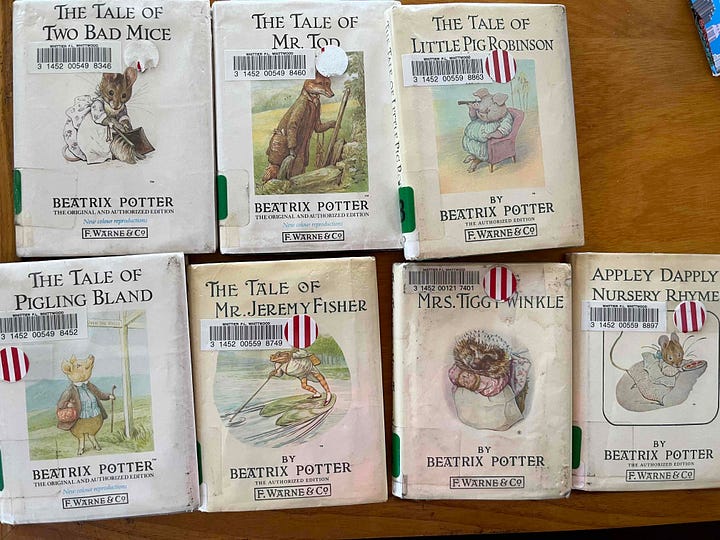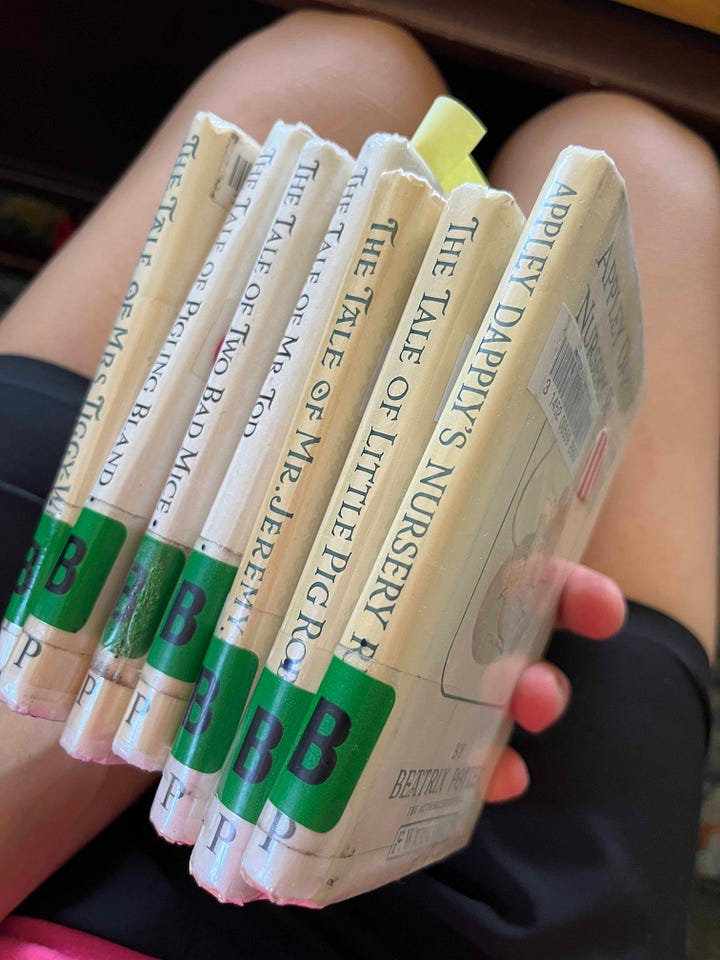

I picked up this collection of little books from the Whittier Public Library and am trying to read them to my six-year-old. I think I’m enjoying them more than he is. They were published over a hundred years ago and are full of old-fashioned English words like “unsatisfactory” and “worst of tempers” and “disgrace” and “disagreeable.”
They also include complicated explanations of circumstances, relatives, and relations. Characters come with an aunt or father or widowed cousin who is explained once and then never again. It’s the sort of thing you’d expect in a Jane Austin novel, not Beatrix Potter.
I do enjoy her descriptions of villains though. They are usually dirty folk, animals that don’t clean themselves properly and don’t keep their homes very clean. They are careless about other’s property and welfare. I think I relate to the villains and miscreants far more than the good little bunnies who do what they’re told.
In The Tale of Mr. Tod, Beatrix Potter describes the disagreeable Mr. Tod like so:
“As usual, when out of humour, he determined to move house. First he tried the pollard willow, but it was damp; and the otters had left a dead fish near it. Mr Tod liked nobody’s leavings but his own.”
Now isn’t that true of human nature? We can’t stand another’s mess but excuse our own. We fly into a diatribe about another’s unfinished projects, but upon finding our own projects half-done, we recall with some fondness the good intentions with which we set out.
I thought this little description accurately described our political state too. We are out of humour and would like a different house. We’ll excuse our own political party’s issues, but rant about the other’s. We want people in leadership who are our own kind of people.
Praise God there’s a cure for this self-love. And that is being reborn into a new family, becoming a part of a house built not by human hands and not with people we’d pick but people God has chosen to shape and grow up.



